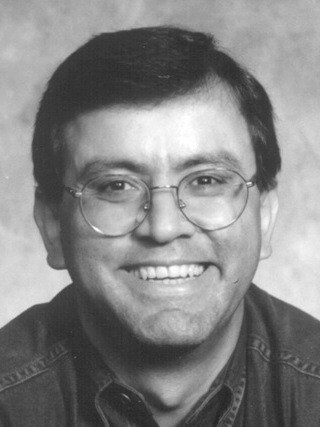
(Speakers listed below in name alphabet order)

Ender Ayanoglu (IEEE Fellow)
Professor, University of California, Irvine, USA.
Title: Machine Learning in NextG Networks via Generative Adversarial Networks
Time: 16:30-17:00, Wednesday, February 22, 2023.
Abstract:
Due to the explosive growth of new users and new applications, it is
expected that the wireless spectrum will need to be used in a dynamic
fashion starting in the near future. This can be achieved by using the
concept of cognitive radio, giving users access to the unused spectrum
under dynamic spectrum access. It is generally accepted that
conventional methods of cognitive radio will fall short of being able
to handle the enormous demand for spectral resources, and therefore it
is expected that techniques from artificial intelligence or machine
learning will help provide dynamic control for spectrum sharing. The
process of spectrum sharing begins with sensing the spectrum.
Recently, a number of techniques for spectrum sensing employing
machine learning have been introduced. In this talk, we discuss
a machine learning approach known as generative adversarial
networks towards this purpose. This particular approach is known to
be very successful for anomaly detection in image processing. We
alter performance criteria used in this set of networks from image
processing applications to wireless and employ such networks for
spectrum sensing, both in conventional and cooperative spectrum
sensing. Initial results show the efficacy of this approach.
Biography:
Ender Ayanoglu received the M.S. and Ph.D. degrees from Stanford University, Stanford, CA in 1982 and 1986, respectively, in electrical engineering. He was with the Communications Systems Research Laboratory, part of AT&T Bell Laboratories, Holmdel, NJ until 1996, and Bell Labs, Lucent Technologies until 1999. From 1999 until 2002, he was a Systems Architect at Cisco Systems, Inc., San Jose, CA. Since 2002, he has been a Professor in the Department of Electrical Engineering and Computer Science, University of California, Irvine, Irvine, CA, where he served as the Director of the Center for Pervasive Communications and Computing and held the Conexant-Broadcom Endowed Chair during 2002- 2010. His past accomplishments include invention of the 56K modems, characterization of wavelength conversion gain in Wavelength Division Multiplexed (WDM) systems, and diversity coding, a technique for link failure recovery in communication networks employing erasure coding in 1990, prior to the publication of the first papers on network coding. During 2000-2001, he served as the founding chair of the IEEE-ISTO Broadband Wireless Internet Forum (BWIF), an industry standards organization which developed and built a broadband wireless system employing Orthogonal Frequency Division Multiplexing (OFDM) and a Medium Access Control (MAC) algorithm that provides Quality-of-Service (QoS) guarantees. This system is the precursor of today’s Fourth Generation (4G) cellular wireless systems such as WiMAX, LTE, and LTEAdvanced. From 1993 until 2014 Dr. Ayanoglu was an Editor, and since January 2014 is a Senior Editor of the IEEE Transactions on Communications. He served as the Editor-in-Chief of the IEEE Transactions on Communications from 2004 to 2008. From 1990 to 2002, he served on the Executive Committee of the IEEE Communications Society Communication Theory Committee, and from 1999 to 2001, was its Chair. Dr. Ayanoglu is the recipient of the IEEE Communications Society Stephen O. Rice Prize Paper Award in 1995 and the IEEE Communications Society Best Tutorial Paper Award in 1997. He has been an IEEE Fellow since 1998.
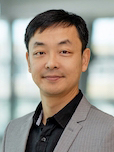
Yuanzhu Chen
Professor, Queen’s University, Canada
Title: 10:30-11:00, Monday, February 20, 2023
Time: Interconnectedness -- from classic theory of graphs to emerging science of networks
Abstract:
What are the commonalities between transfer of data packets on the Internet, ordering web pages by a search engine, formation of communities and opinions in a social network, spread of diseases, chemical reactions of molecules in a cell, flow of cash in a financial market, and collaboration among movie actors? If modeled with networks, what are the physical laws governing the structures and evolution of these networks of varying natures? This talk provides a narrative of the emergence of the science of networks, and how such a transition from reductionism to holism of scientific research through interconnectedness affects everyone of us.
Biography: YUANZHU CHEN received the B.Sc. degree from Peking University, China, in 1999, and the Ph.D. degree from Simon Fraser University, Canada, in 2004. He has been a Professor of computing science since 2005 and is currently affiliated with School of Computing, Queen’s University. From 2004 to 2005, he was a Postdoctoral Researcher with Simon Fraser University. In 2005, Dr. Chen joined Memorial University as a tenure-track Assistant Professor. While at Memorial, he was the Deputy Head for Undergraduate Studies from 2012 to 2015, the Deputy Head for Graduate Studies from 2016 to 2019, and Department Head from 2019 to 2021. He then joined Queen’s School of Computing in 2021. Dr. Chen's research interests include complex networks, computer networking, online social networks, mobile computing, graph theory, Web information retrieval, and evolutionary computation, with funding from national agencies and various university programs and awards. He was a recipient of the President’s Award for Distinguished Teaching in 2018.
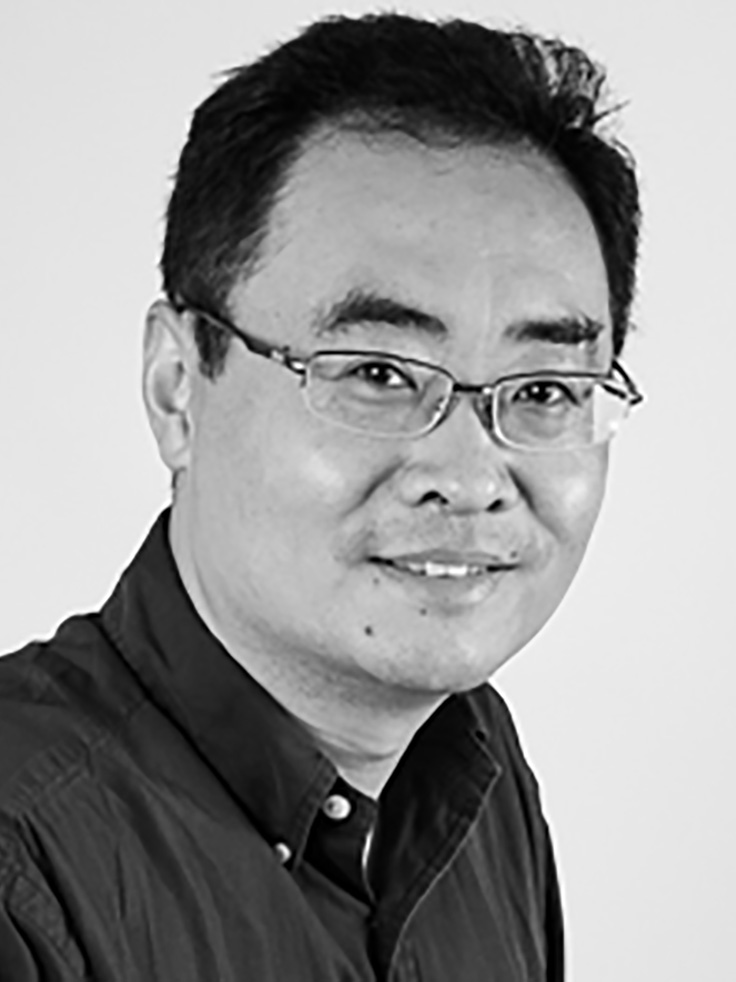
Yu Cheng
Professor, Illinois Institute of Technology, USA
Title: 11:00-11:30, Tuesday, February 21, 2023
Time: Application-Oriented Scheduling for Optimizing Information Freshness in Wireless Networks
Abstract:
Motivated by the increasingly urgent demands for delivering fresh information, the age-of-information (AoI) has recently been introduced as an important metric for evaluating the timeliness performance of information update systems. Nevertheless, most of the existing studies are transmission-oriented, instead of directly characterizing the information freshness consumed at the application layer. In this talk, we introduce the concept of effective AoI (EAoI) to quantify the freshness of the information users utilize for decision-making. We consider a general request-response model, which captures both proactive information update and timely information delivery, for investigating the scheduling problem with respect to EAoI minimization. By decomposing the scheduling problem into multiple computationally tractable sub-problems, we propose request-aware scheduling policies for static and dynamic request models, respectively. The numerical results show that serving users requests proactively can reduce time-average EAoI in both scenarios.
Biography: Yu Cheng (S’01–M’04–SM’09) received the B.E. and M.E. degrees in electronic engineering from Tsinghua University, Beijing, China, in 1995 and 1998, respectively, and the Ph.D. degree in electrical and computer engineering from the University of Waterloo, Waterloo, ON, Canada, in 2003. He is currently a Full Professor with the Department of Electrical and Computer Engineering, Illinois Institute of Technology, Chicago, IL, USA. His current research interests include wireless network performance analysis, network security, big data, cloud computing, and machine learning. Dr. Cheng was a recipient of the Best Paper Award at QShine 2007, the IEEE ICC 2011, the Runner-Up Best Paper Award at ACM MobiHoc 2014, the National Science Foundation CAREER Award in 2011, and the IIT Sigma Xi Research Award in the Junior Faculty Division in 2013. He has served as several Symposium Co-Chairs for IEEE ICC and IEEE GLOBECOM, and the Technical Program Committee Co-Chair for WASA 2011 and ICNC 2015. He was a founding Vice Chair of the IEEE ComSoc Technical Subcommittee on Green Communications and Computing. He was an IEEE ComSoc Distinguished Lecturer from 2016 to 2017. He is an Associate Editor for the IEEE Transactions on Vehicular Technology, IEEE Internet of Things Journal, and IEEE Wireless Communications.
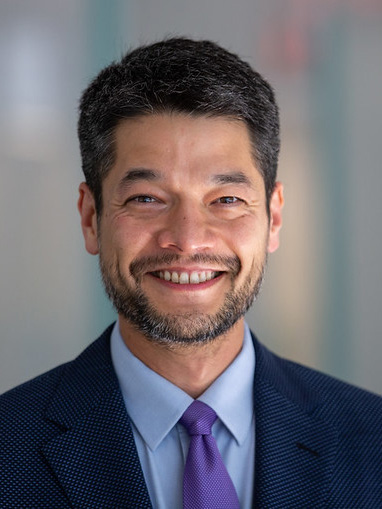
Kevin Fu (IEEE Fellow, Dr. Dwight E. Harken Memorial Lecturer)
Associate Professor, University of Michigan, USA.
Title: Wicked bizarre semiconductor physics of sensor security
Time: 16:00-16:30, Monday, February 20, 2023
Abstract:
Medical devices, healthcare delivery, and other cyber-physical systems depend on sensors to make safety-critical, automated decisions. My research lab investigates the problem of how to protect cyber-physical systems from adversaries who can maliciously control sensor output by subverting its semiconductor physics. Finding principled, systematic solutions is extremely important to give consumers confidence in innovative medical devices and other emerging technology. Unique to our embedded security research contributions is an emphasis on protecting the longevity of implanted batteries and using software-only approaches to mitigate design flaws in legacy hardware. These contributions were important to creating the field of medical device security; advancing the academic community's ability to measurably defend against signal injection attacks on sensors; and changing how international regulators evaluate security of consumer products. In this talk, I will highlight academic research on protecting sensor semiconductors from maliciously modulated sound waves, radio waves, and lasers that can compromise software systems in cyber-physical systems such as pacemakers and vaccine cold-chain transportation.
Biography:
Kevin Fu is Associate Professor of EECS at the University of Michigan where he directs the Archimedes Center for Healthcare and Device Security. Fu previously served as the nation's inaugural Acting Director of Medical Device Cybersecurity at U.S. FDA’s Center for Devices and Radiological Health (CDRH) and Program Director for Cybersecurity at the Digital Health Center of Excellence (DHCoE). His research vision is a world where science-based security is built-in by design to all embedded systems: medical devices, healthcare delivery, autonomous transportation, manufacturing, and the Internet of Things. His research lab focuses on analog cybersecurity—how to model and defend against threats to the physics of computation and sensing. Fu is most known for his security research on cryptographic and low-power inventions to defend against vulnerabilities in an implantable cardiac defibrillator. His research led to a decade of revolutionary improvements at medical device manufacturers, global regulators, and international healthcare safety standards bodies. Security solutions resulting from this research foresaw the risks of malicious software affecting hospitals a decade before ransomware began to disrupt clinical workflow worldwide.
Fu has been recognized as an IEEE Fellow, Sloan Research Fellow, and MIT Technology Review TR35 Innovator of the Year. He received best paper awards from USENIX Security, IEEE Security & Privacy, and ACM SIGCOMM. His research on pacemaker security received an IEEE Security & Privacy Test of Time Award. He co-founded healthcare cybersecurity startup Virta Labs. Fu has testified in the House and Senate and was commissioned by the National Academy of Medicine for a report on trustworthy medical device software. He serves as a member of the Association for the Advancement of Medical Instrumentation (AAMI) Biomedical Instrumentation & Technology Editorial Board, the ACM Committee on Computers and Public Policy, and the USENIX Security Steering Committee. He chairs the USENIX Security Test of Time Awards Selection Committee. He chaired the USENIX Security PC and served as the inaugural co-chair of the AAMI cybersecurity working group to create the first FDA-recognized consensus standards to improve the security of medical device manufacturing. He founded the Archimedes Center for Healthcare and Device Security, and co-founded the N95decon.org team for emergency reuse decontamination of N95 masks during pandemic shortages. Fu served as a member of the U.S. NIST Information Security and Privacy Advisory Board and federal science advisory groups. Fu received his BS, MEng, and PhD from MIT. He earned a certificate of artisanal bread making from the French Culinary Institute, builds wood-fired brick ovens, and enjoys woodworking.
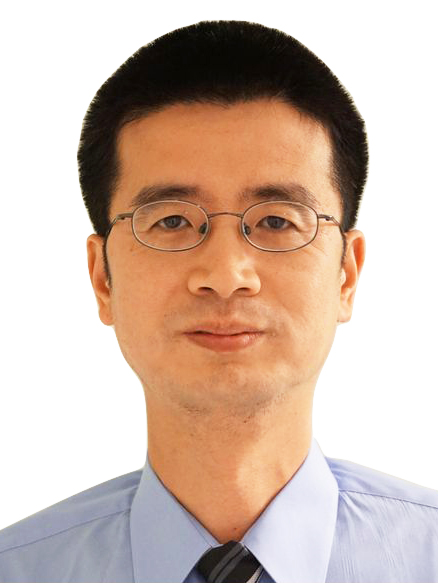
Xinwen Fu
Professor, University of Massachusetts Lowell, USA.
Title: Unified View of IoT and CPS Security and Privacy
Time: 17:30-18:00, Monday, February 20, 2023
Abstract:
In this talk, I will present a unified view of Internet of Things (IoT) and Cyber Physical Systems (CPS) security and privacy. From the perspective of network architecture, IoT and CPS are similar. IoT devices and CPS field devices are controlled by particular types of communication modules, actuators and controllers. The modules and components have the networking functionality, connecting the devices to particular types of local area networks (LANs), which may use proprietary protocols. The LANs may be connected to the Internet so that administrators may access the devices remotely. We will use an air quality monitoring system and a smart plug system as IoT examples and smart building as an example CPS to demonstrate the unified view of IoT and CPS. There is a broad spectrum of IoT devices. We can divide them into two categories: powerful microprocessor based IoT systems that can run powerful operating systems (OSs) such as Linux; low-power microcontroller (MCU) based IoT systems that often do not run any OS or have limited OS support such as FreeRTOS. We will present an overview of MCU based IoT research from six aspects, including hardware, OS, software, networking, data and human, and discuss the trend of research in those fields.
Biography:
Dr. Xinwen Fu is a Professor in the Department of Computer Science, University of Massachusetts Lowell. He was a tenured Associate Professor at University of Central Florida. His current research interests are in computer and network security and privacy. Dr. Fu has published at prestigious conferences including the four top computer security conferences (Oakland, CCS, USENIX Security and NDSS), and journals such as ACM/IEEE Transactions on Networking (ToN) and IEEE Transactions on Dependable and Secure Computing (TDSC). He spoke at various technical security conferences including Black Hat. His research was reported by various Media including CNN, Wired, Huffington Post, Forbes, Yahoo, MIT Technology Review, PC Magazine and aired on CNN Domestic and International and the State Science and Education Channel of China (CCTV 10).
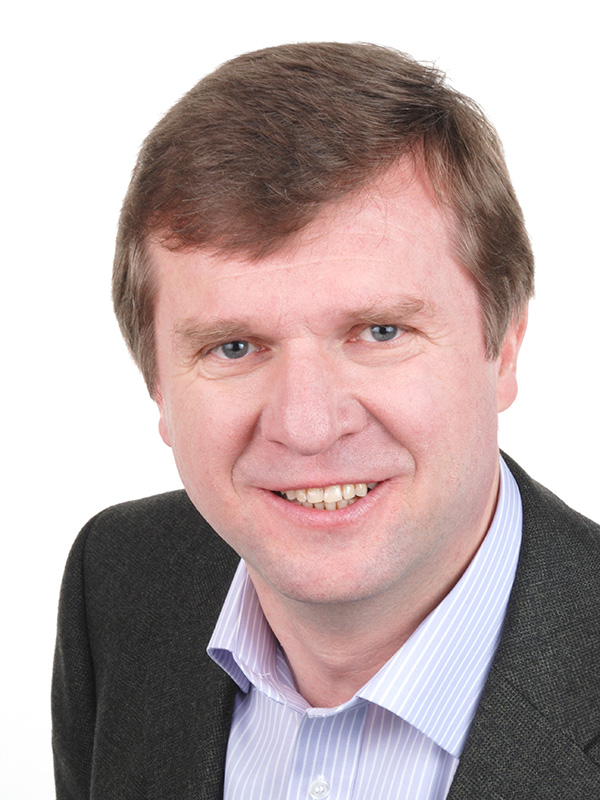
Sergei Gorlatch
Professor, University of Muenster, Germany
Title: Distributed Software Applications Based on Mobile Cloud and Software-Defined Networks
Time: 11:30-12:00, Monday, February 20, 2023.
Abstract:
We consider an emerging class of challenging software applications called Real-Time Online Interactive Applications (ROIA). ROIA are networked applications connecting a potentially very high number of users who interact with the application and with each other in real time, i.e., a response to a user’s action happens virtually immediately. Typical representatives of ROIA are multiplayer online computer games, advanced simulation-based e-learning and serious gaming. All these applications are characterized by high performance and QoS requirements, such as: short response times to user inputs (about 0.1-1.5 s); frequent state updates (up to 100 Hz); large and frequently changing numbers of users in a single application instance (up to tens of thousands simultaneous users). This talk will address two challenging aspects of software for future Internet-based ROIA applications: a) using Mobile Cloud Computing for allowing high application performance when a ROIA application is accessed from multiple mobile devices, and b) managing dynamic QoS requirements of ROIA applications by employing the emerging technology of Software-Defined Networking (SDN).
Biography:
Sergei Gorlatch is Full Professor of Computer Science at the University of Muenster (Germany) since 2003. Earlier he was Associate Professor at the Technical University of Berlin, Assistant Professor at the University of Passau, and Humboldt Research Fellow at the Technical University of Munich, all in Germany. Prof. Gorlatch has more than 200 peer-reviewed publications in renowned international books, journals and conferences. He was principal investigator in several international research and development projects in the field of software for parallel, distributed, Grid and Cloud systems and networking, funded by the European Community and by German national bodies.
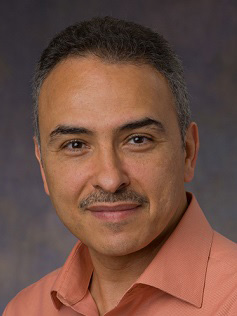
Hassam Hassanein (IEEE Fellow)
Professor, Queen's University, Canada
Title: Anticipatory Radio Resource Management for 5G Networks and Beyond
Time: 16:30-17:00, Tuesday, February 21, 2023
Abstract:
5G wireless networks have brought about a technological transformation in modern societies by providing an ultra-reliable high-speed communications infrastructure that will serve billions of devices, machines and vehicles. These devices will contribute massive amounts of data that will need to be pipelined over future Beyond 5G (B5G) networks under the umbrella of future smart cities, connected autonomous cars, and IoT applications. The complexity of B5G networks will hence be unprecedented, due to the very diverse applications, ultra-low latency requirements for critical vehicle communication, growing demand for high positioning accuracy for location-based services, and dense, heterogeneous architectures.
In this talk, we address our efforts towards developing a smart management solution suite for future B5G networks based on innovative machine learning and big data analytics techniques. In particular, we discuss data-driven radio resource management functions that are mobility- and context-aware. In this domain we discuss the design of a predictive resource allocator that leverages individual user-level mobility information to opportunistically plan data transmissions in advance. We also discuss how to autoconfigure B5G mobility management network settings of cell selection and handover. The solutions will enable networks to be self-diagnosing and self-organizing and will enhance network capacity and user service while reducing capital and operating expenditures.
Biography:
Hossam Hassanein is a leading authority in the areas of broadband, wireless and mobile networks architecture, protocols, control and performance evaluation. His record spans more than 500 publications in journals, conferences and book chapters, in addition to numerous keynotes and plenary talks in flagship venues. Dr. Hassanein has received several recognition and best paper awards at top international conferences. He is the founder and director of the Telecommunications Research Lab (TRL) at Queen's University School of Computing, with extensive international academic and industrial collaborations. He is a fellow of the IEEE, and is a former chair of the IEEE Communication Society Technical Committee on Ad hoc and Sensor Networks (TC AHSN). Dr. Hassanein is an IEEE Communications Society Distinguished Speaker (Distinguished Lecturer 2008-2010).
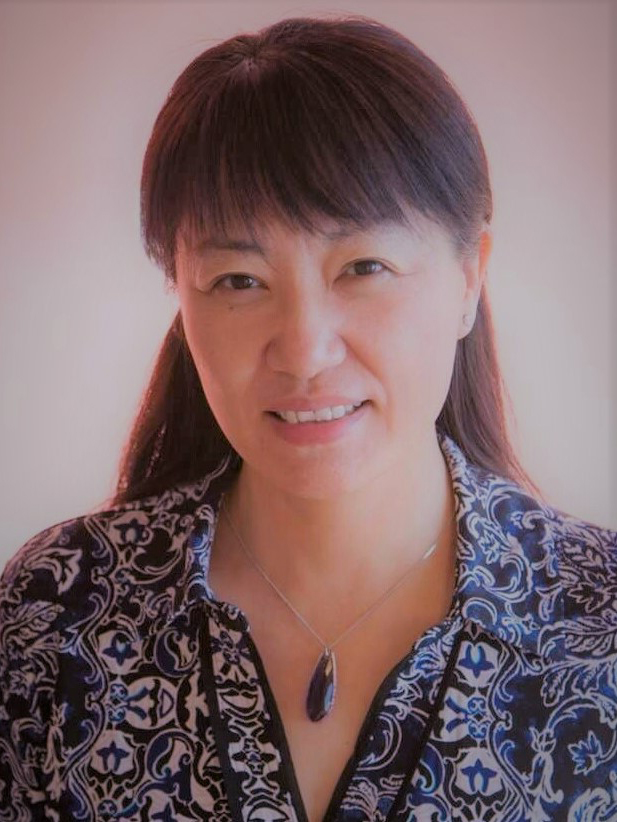
Rose Qingyang Hu (IEEE Fellow)
Professor, Utah State University, USA.
Title: Federated Learning With Efficiency and Privacy Considerations in Wireless Networks
Time: 11:00-11:30, Monday, February 20, 2023.
Abstract:
Centralized data collection and training in conventional machine learning (ML) algorithms have raised many concerns including privacy restrictions and communication cost due to massive amount of data transfer. Federated leaning (FL) exploits the rapidly growing computational capacity in small local devices and allows these devices to train ML models locally and only exchange the trained model parameters with the edge server. Through this, FL can greatly alleviate data privacy concern, reduce communication cost, and help build a scalable centralized ML model. FL methods offer a number of prominent advantages, including scalability and data privacy. On the other hand, a large-scale wireless network normally involves many heterogeneous devices with varying constraints and encounters very dynamic channel environments. This raises many challenges such as system heterogeneity, statistical heterogeneity, privacy and security, user scheduling, fairness in FL. This talk will present some of our recent research outcomes on model parameter transmission schemes and user scheduling strategies in FL that tackle these challenges. Techniques such as NOMA and over-the-air computation are introduced to achieve fast ML training. Model parameter compression and sparsification are further introduced to reduce the wireless communication cost. Moreover, model update-based aggregation is applied to defend against Byzantine attacks and individual client model initialization schemes are exploited to enhance privacy protection in FL.
Biography:
Prof. Rose Qingyang Hu is currently associate dean for research of College of Engineering and full professor of Electrical and Computer Engineering Department at Utah State University. She received her B.S. degree from University of Science and Technology of China, her M.S. degree from New York University, and her Ph.D. degree from the University of Kansas. Besides 10 years' academia research experience, Prof. Hu also has more than 10 years R&D experience with Nortel, Blackberry and Intel as technical manager, senior research scientist, and senior wireless system architect, actively participating in industrial 3G/4G technology development, standardization, system level simulation and performance evaluation. Her current research interests include next-generation wireless communications, wireless network design and optimization, Internet of Things, Cloud computing/Fog computing, multimedia QoS/QoE, wireless system modeling and performance analysis. She has published more than 200 papers in top IEEE journals and conferences and holds over 30 patents in her research areas. Prof. Hu is an IEEE Communications Society Distinguished Lecturer 2015-2018 and recipient of Best Paper Awards from IEEE Globecom 2012, IEEE ICC 2015, IEEE VTC Spring 2016, and IEEE ICC 2016. She served as Tchnology, IEEE Communications Magazine, IEEE Wireless Communications Magazine.
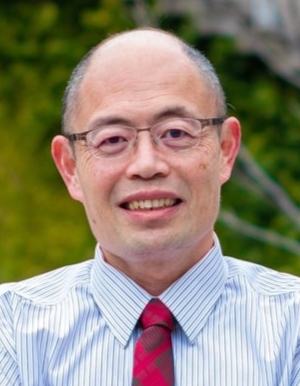
Chin-Tser Huang
Professor, University of South Carolina, USA.
Title: Smart Markers in a Blockchain: How to Release the Shackle of Single Branch
Time: 16:00-16:30, Wednesday, February 22, 2023.
Abstract:
The increasing complexity of modern hardware and software platform along with the imperative assurance on stability deems runtime verification of task fulfillment necessary in distributed systems. Distributing the burden of a central verification monitor to individual devices could improve the efficiency. It is possible to achieve decentralized runtime verification by incorporating some mechanisms of the blockchain technology for locating the accountability when error occurs. However, traditional blockchain technology disallows branching and hence does not support verification of tasks which involves multiway dependencies. In this talk, we introduce a novel approach of smart marker that can be included in a blockchain to enable multiway branching and merging in order to verify the fulfillment of tasks that involve one-to-many and many-to-one dependencies. The design of smart marker satisfies three requirements of recognizability, compatibility, and authenticability. We will also introduce how the smart markers can be used to enable an amendable and correctable blockchain.
Biography:
Dr. Chin-Tser Huang is a Professor in the Department of Computer Science and Engineering at University of South Carolina at Columbia. He received the B.S. degree in Computer Science and Information Engineering from National Taiwan University, Taipei, Taiwan, in 1993, and the M.S. and Ph.D. degrees in Computer Sciences from The University of Texas at Austin in 1998 and 2003, respectively. His research interests include network security, network protocol design and verification, and distributed systems. He is the director of the Secure Protocol Implementation and Development (SPID) Laboratory at the University of South Carolina. He is the author (along with Mohamed Gouda) of the book “Hop Integrity in the Internet,” published by Springer in 2005. His research has been funded by DARPA, AFOSR, AFRL, NSF, NEH, and USDOT. He is an NRC Research Associate in 2020, and a recipient of the USAF Summer Faculty Fellowship Award and of the AFRL Visiting Faculty Research Program Award in 2008-2022. He is a Senior Member of IEEE and ACM.
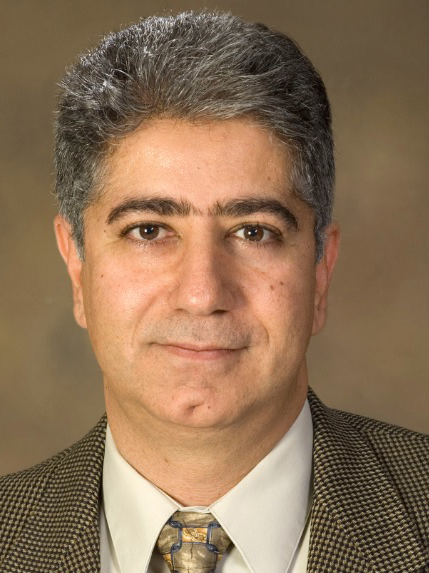
Marwan Krunz (IEEE Fellow)
Kenneth VonBehren Endowed Professor, The University of Arizona, USA.
Title: Stealthy Adversarial Machine Learning Attacks on RF Signal Classifiers: Algorithms and Countermeasures
Time: 16:00-16:30, Tuesday, February 21, 2023
Abstract:
Machine learning (ML) has recently been applied for the classification of radio frequency (RF) signals. One use case of interest relates to the discernment between different wireless protocols that operate over a shared and potentially contested spectrum. Although highly accurate classifiers have been developed for various wireless scenarios, research points to the vulnerability of such classifiers to adversarial machine learning (AML) attacks. In one such attack, a surrogate deep neural network (DNN) model is trained by the attacker to produce intelligently crafted low power “perturbations” that degrade the classification accuracy of the legitimate classifier. In this talk, I will first present several novel DNN protocol classifiers that our team designed for a shared spectrum environment. These classifiers performed quite well in both simulations and OTA experimentation, considering benign (non-adversarial) noise. I will then present several AML techniques that an attacker may use to generate low power perturbations. When combined with a legitimate signal, these perturbations are shown to uniformly degrade the classification accuracy, even in the very high SNR regime. Different attack models are studied, depending on how much information the attacker has about the defender’s classifier. These models range from a “white-box'” attack (attacker has full knowledge of the defender’s DNN, including its hyperparameters, its training dataset, and even the seeds used to train the network), to a “black-box” attack. Time permitting, I will discuss possible defense mechanisms as well as other research efforts related to detection of adversarial transmissions.
Biography:
is a Regents Professor at the University of Arizona. He holds the Kenneth VonBehren Endowed Professorship in ECE and is also a professor of computer science. He directs the Broadband Wireless Access and Applications Center (BWAC), a multi-university NSF/industry center that focuses on next-generation wireless technologies. He also holds a courtesy appointment as a professor at University Technology Sydney. Previously, he served as the site director for the Connection One center. Dr. Krunz’s research is on resource management, network protocols, and security for wireless systems. He has published more than 300 journal articles and peer-reviewed conference papers, and is a named inventor on 12 patents. His latest h-index is 60. He is an IEEE Fellow, an Arizona Engineering Faculty Fellow, and an IEEE Communications Society Distinguished Lecturer (2013-2015). He received the NSF CAREER award. He served as the Editor-in-Chief for the IEEE Transactions on Mobile Computing. He also served as editor for numerous IEEE journals. He was the TPC chair for INFOCOM’04, SECON’05, WoWMoM’06, and Hot Interconnects 9. He was the general vice-chair for WiOpt 2016 and general co-chair for WiSec’12. Dr. Krunz served as chief scientist for two startup companies that focus on 5G and beyond systems and machine learning for wireless communications.
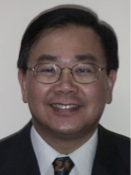
Victor C.M. Leung (IEEE/RSC/EIC/CAE Fellow)
TELUS Mobility Research Chair Professor, The University of British Columbia, Canada
Title: Blockchain-enabled Edge Intelligence for 6G IoT
Time: 10:30-11:00, Tuesday, February 21, 2023
Abstract:
In the emerging 6G network, massive deployment of Internet of Things (IoT) devices to support smart environments such as smart cities, smart factories, smart offices and smart homes is anticipated. To deal with the enormous amount of data that will be generated by these devices and provide support to various applications, many of which have stringent latency requirements, use of multi-access edge computing (MEC) with artificial intelligence (AI), so called edge intelligence becomes critical. In very large networks, edge nodes may belong to different entities. Blockchain, a distributed ledger technology (DLT), has become a powerful structure to share data in a verifiable manner among edge nodes without them sharing trust. We present an overview of blockchain-enabled edge intelligence, and outline several challenges that researchers strive to address in this paradigm. The long time-delay of legacy blockchain consensus mechanisms make it difficult to meet the stringent latency requirement of 6G IoT. The security of distributed machine learning may be compromised by cyber-attacks. Performance of AI in 6G IoT may be constrained by the heterogeneity of IoT data. To address some of these challenges, we present innovative solutions for blockchain-enabled edge intelligence to minimize latency in blockchain-based edge training, defend against attacks on IoT data, and improve prediction accuracy of AI models in the presence of heterogeneous IoT data.
Biography:
VICTOR C.M. LEUNG is an Emeritus Professor of Electrical and Computer Engineering at the University of British Columbia, Canada, and a Distinguished Professor of Computer Science and Software Engineering at Shenzhen University, China. He has co-authored numerous refereed articles in the broad areas of wireless networks and mobile systems, and is a Clarivate Analytics “Highly Cited Researcher”. Dr. Leung is an editor of the IEEE TGCN, IEEE TCC, IEEE TCSS, IEEE Access, IEEE Network, and several other journals. He received the 2017 IEEE ComSoc Fred W. Ellersick Prize, 2017 IEEE Systems Journal Best Paper Award, 2017 Canadian Award for Telecommunications Research, 2018 IEEE TCGCC Distinguished Technical Achievement Recognition Award, 2018 IEEE CSIM Best Journal Paper Award, and 2019 IEEE TCGCC Best Journal Paper Award, as well as several other awards. He is a Life Fellow of IEEE, and a Fellow of the Royal Society of Canada (Academy of Science), Canadian Academy of Engineering, and Engineering Institute of Canada.
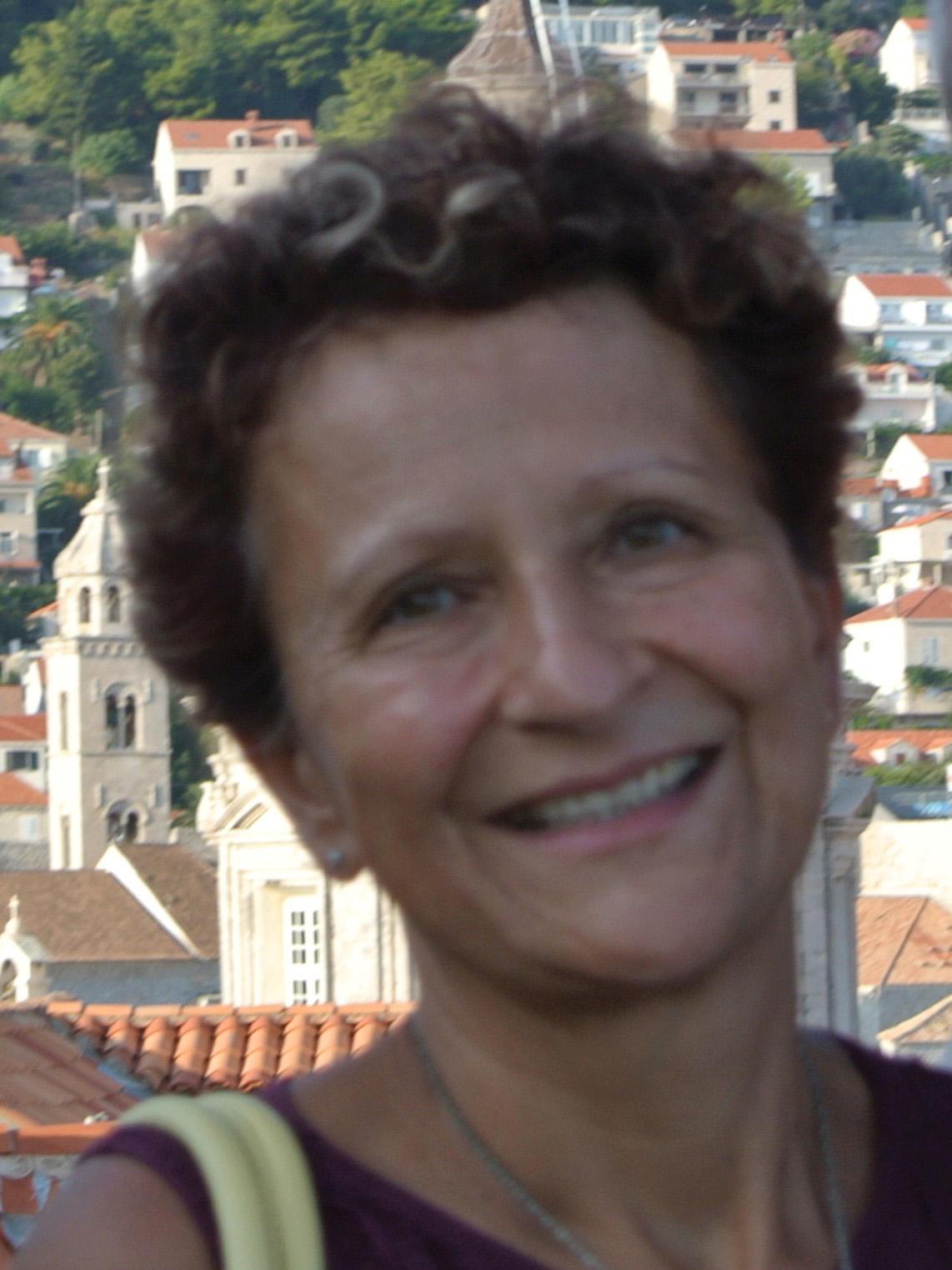
Jelena Misic (IEEE Fellow)
Professor, Ryerson University, Canada
Title: Adapting Practical Byzantine Fault Tolerance (PBFT) for use with Blockchain-enable IoT systems
Time: 11:30-12:00, Wednesday, February 22, 2023
Abstract:
This work proposes Practical Byzantine Fault Tolerance (PBFT) ordering service
needed for block formation in permissioned blockchain environments. Contrary to current PBFT
implementations that only provide a single point of entry to the ordering service, we allow each
ordering node to act as an entry point that proposes and conducts the consensus process of
including new record in the distributed ledger. To ensure atomicity of record insertion in
distributed ledger, we have developed a bandwidth reservation protocol that uses a modification
of CSMA/CA protocol to regulate access to the broadcast medium formed by the P2P network of
TCP connections between orderers. We have modeled record insertion service time in a cluster
where ordering nodes have random position within Cartesian coordinate system. We have also
modeled total request access time to the ledger which includes waiting time in the ordererÌs queue
and record insertion time. These models are used to evaluate system performance under variable
request rate ordering service, variable number of nodes and variable physical cluster dimensions.
We also address cluster interconnections which can increase coverage and capacity of PBFT
system.
Biography:
Jelena Misic is a Professor in the Department of Computer Science at
Ryerson University, Canada. She received her PhD in Computer Engineering from University of
Belgrade, Serbia, in 1993. She is an internationally recognized expert in the area of IoT, blockchain,
wireless networking and network security, where she has authored or co-authored four books, 155+
journal papers, 24 book chapters, and 215+ conference papers. She has chaired more than a dozen
major international events and guest-edited more than a dozen special issues of various journals.
She serves on the editorial boards of IEEE Transactions on Vehicular Technology, IEEE Internet
of Things Journal, IEEE Transactions on Emerging Topics in Computing, IEEE Network, ACM
Computing Surveys and Ad Hoc Networks journal (published by Elsevier). She is an IEEE Fellow,
ACM member and serves as IEEE VTS distinguished lecturer.
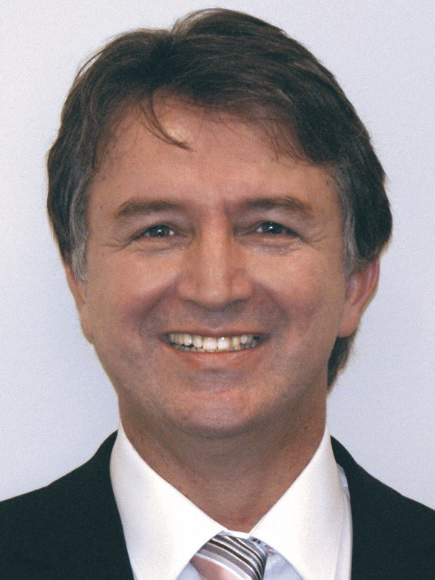
Panos Nasiopoulos (IEEE/CAE Fellow)
Professor, University of British Columbia, Canada
Title: An in-depth look at Deep Learning in Digital Media
Time: 11:00-11:30, Wednesday, February 22, 2023
Abstract:
Deep learning has seen ground breaking developments during the past decade, being responsible for significant advancements in many industries. Undoubtedly, to meet and exceed the enormous future expectations, we need to overcome challenges arising from the inability to explain what is considered a “black box” process.
Biography:
Dr. Panos Nasiopoulos is a professor with the Department of Electrical and Computer Engineering and the former Director of the Institute for Computing, Information and Cognitive Systems and the Master of Software Systems at UBC. Before joining UBC, he was the President of Daikin Comtec US (co-founder of DVD) and Executive Vice President of Sonic Solutions. His research interests are primarily in the area of intelligent digital media, visual information capture and delivery, artificial intelligence in digital media with focus on entertainment, security, autonomous driving, smart cities and health, he is the author or the co-author of numerous research publications and patents. He is a registered member of the Association of Professional Engineers and Geoscientists of British Columbia (APEGBC), a Fellow of IEEE, a Fellow of the Canadian Academy of Engineering, and has been an active member of the Standards Council of Canada, MPEG and IEEE.
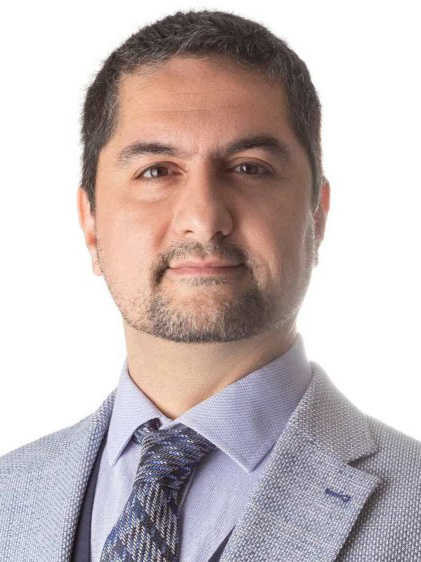
Shervin Shirmohammadi (IEEE Fellow)
Professor, University of Ottawa, Canada
Title: Towards Automating Network Operation Centers with AI
Time: 10:30-11:00, Wednesday, February 22, 2023
Abstract:
Network Operation Centers (NOC) are responsible for monitoring their network’s health and performing service assurance by meeting the customers’ service level agreements while reducing operational expenditures. In today’s NOCs, most of the said operations are either done manually or, for the simplest cases, with previously prepared expert rules. A team of NOC technicians works 24/7 and, to handle non-trivial issues, relies on specialized support teams organized by technology domains, themselves relying on vendors’ technical support on call. But this mostly manual model is getting increasingly expensive and inefficient as networks become larger and more complex. Automating NOC operations would be a big help, but automation attempts with explicit rules have not been very successful due to the intrinsic difficulty
of defining rules that work reliably in such complex systems. In this talk, we describe our pilot study with Ciena Corp in using Artifical Intelligence to automate both network state detection and action recommendation, achieving up to 99% and 97% accuracy, respectively.
Biography:
Shervin Shirmohammadi (M'04, SM'04, F'17) received his Ph.D. in Electrical Engineering in 2000 from the University of Ottawa, Canada, and after spending 3 years in the industry as a senior architect and project manager, joined as Assistant Professor the same University, where since 2012 he has been a Full Professor with the School of Electrical Engineering and Computer Science. He is Director of the DISCOVER Laboratory, doing research in Applied AI and measurement methods for multimedia systems and networks, specifically video systems, gaming systems, and multimedia-assisted healthcare systems. The results of his research, funded by more than $28 million from public and private sectors, have led to over 400 publications, 3 Best Paper awards, over 70 researchers trained at the postdoctoral, PhD, and Master’s levels, 30 patents and technology transfers to the private sector, and a number of awards. He is the founding Editor-in-Chief of the IEEE Open Journal of Instrumentation and Measurement, an Associate Editor of ACM Transactions on Multimedia Computing Communications and Applications, and was the Editor-in-Chief of the IEEE Transactions on Instrumentation and Measurement from 2017 to 2021 and an Associate Editor of IEEE Transactions on Circuits and Systems for Video Technology from 2016 to 2019, having been numerously recognized as the Associate Editor of the Year by the latter three journals.
Dr. Shirmohammadi is an IEEE Fellow for contributions to multimedia systems and network measurements, winner of the 2019 George S. Glinski Award for Excellence in Research, winner of the 2021 IEEE IMS Distinguished Service Award, a Senior Member of the ACM, a University of Ottawa Gold Medalist, and a licensed Professional Engineer in Ontario.
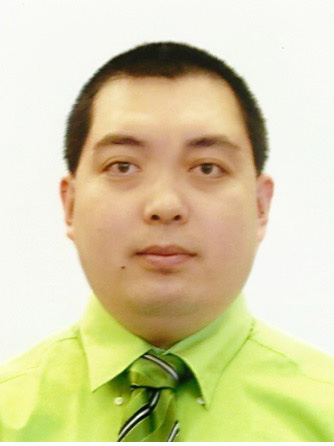
Houbing Song (IEEE Fellow)
Associate Professor, University of Maryland, Baltimore County (UMBC), USA
Title: AI for Cybersecurity and Security of AI
Time: 15:00-15:30, Wednesday, February 22, 2023
Abstract:
The mutual needs and benefits of AI and cybersecurity have been widely recognized. AI techniques are expected to enhance cybersecurity by assisting human system managers with automated monitoring, analysis, and responses to adversarial attacks. Conversely, it is essential to guard AI technologies from unintended uses and hostile exploitation by leveraging cybersecurity practices. The interplay between AI/machine learning, and cybersecurity introduces new opportunities and challenges in the security of AI as well as AI for cybersecurity. In this talk, I will present my recent research on AI for cybersecurity and the security of AI. First, I will introduce my research on AI for cybersecurity, i.e., real-time machine learning for quickest event (threat/intrusion/vulnerability…) detection. Next, I will present my research on the security of AI, i.e., coverage-driven testing and evaluation of deep learning systems. I will conclude my presentation with my ongoing research on neurosymbolic AI.
Biography:
Houbing Song (M’12–SM’14-F’23) received the Ph.D. degree in electrical engineering from the University of Virginia, Charlottesville, VA, in August 2012.
He is currently a Tenured Associate Professor and the Director of the Security and Optimization for Networked Globe Laboratory (SONG Lab, www.SONGLab.us), University of Maryland, Baltimore County (UMBC), Baltimore, MD. SONG Lab graduates work in a variety of companies and universities. Those seeking academic positions have been hired as tenure-track assistant professors at universities like Auburn University, Bowling Green State University, and University of Tennessee. Prior to joining UMBC, he was a Tenured Associate Professor of Electrical Engineering and Computer Science at Embry-Riddle Aeronautical University, Daytona Beach, FL. He has served as an Associate Technical Editor for IEEE Communications Magazine (2017-2020), an Associate Editor for IEEE Internet of Things Journal (2020-present), IEEE Transactions on Intelligent Transportation Systems (2021-present), and IEEE Journal on Miniaturization for Air and Space Systems (J-MASS) (2020-present). He is the editor of eight books, the author of more than 100 articles and the inventor of 2 patents. His research interests include cyber-physical systems/internet of things, cybersecurity and privacy, and AI/machine learning/big data analytics. His research has been sponsored by federal agencies (including National Science Foundation, US Department of Transportation, and Federal Aviation Administration, among others) and industry. His research has been featured by popular news media outlets, including IEEE GlobalSpec's Engineering360, Association for Uncrewed Vehicle Systems International (AUVSI), Security Magazine, CXOTech Magazine, Fox News, U.S. News & World Report, The Washington Times, and New Atlas.
Dr. Song is an IEEE Fellow, an ACM Distinguished Scientist, and an ACM Distinguished Speaker. Dr. Song is a Highly Cited Researcher identified by Clarivate™ (2021, 2022) and a Top 1000 Computer Scientist identified by Research.com. He received Research.com Rising Star of Science Award in 2022 (World Ranking: 82; US Ranking: 16). Dr. Song was a recipient of 10+ Best Paper Awards from major international conferences, including IEEE CPSCom-2019, IEEE ICII 2019, IEEE/AIAA ICNS 2019, IEEE CBDCom 2020, WASA 2020, AIAA/ IEEE DASC 2021, IEEE GLOBECOM 2021 and IEEE INFOCOM 2022.

Lee Swindlehurst (IEEE Fellow)
Professor, University of California, Irvine, USA.
Title: Wave-Controlled Reconfigurable Intelligent Surfaces
Time: 10:00-10:30, Tuesday, February 21, 2023
Abstract:
Reconfigurable Intelligent Surfaces (RIS) are able to beneficially modify the radio wave propagation environment by electronically controlling the behavior of a large number of small reactive elements. Very large RIS with many controllable elements would in principle require numerous electronic connections that complicate the design and layout of the physical device. In many scenarios, especially when the RIS elements are closely spaced (e.g., less than one-half wavelength), coupling prevents achieving arbitrary element phase responses, and besides the desired element responses are likely to be highly correlated. Thus, the number of effective degrees of freedom offered by the RIS may be significantly less than the number of its elements. To exploit this fact, we propose a waveguide-based control that simplifies the design and provides an efficient parameterization of the RIS degrees of freedom in terms of the modes of a waveguide signal that propagates across the RIS. Examples will be given showing the performance of such a method compared with methods that attempt to arbitrarily control each RIS element.
Biography:
Lee Swindlehurst received the B.S. (1985) and M.S. (1986) degrees in Electrical Engineering from Brigham Young University (BYU), and the PhD (1991) degree in Electrical Engineering from Stanford University. He was with the Department of Electrical and Computer Engineering at BYU from 1990-2007, where he served as Department Chair from 2003-06. During 1996-97, he held a joint appointment as a visiting scholar at Uppsala University and the Royal Institute of Technology in Sweden. From 2006-07, he was on leave working as Vice President of Research for ArrayComm LLC in San Jose, California. Since 2007 he has been a Professor in the Electrical Engineering and Computer Science Department at the University of California Irvine, where he served as Associate Dean for Research and Graduate Studies in the Samueli School of Engineering from 2013-16. During 2014-17 he was also a Hans Fischer Senior Fellow in the Institute for Advanced Studies at the Technical University of Munich. In 2016, he was elected as a Foreign Member of the Royal Swedish Academy of Engineering Sciences (IVA). His research focuses on array signal processing for radar, wireless communications, and biomedical applications, and he has over 300 publications in these areas. Dr. Swindlehurst is a Fellow of the IEEE and was the inaugural Editor-in-Chief of the IEEE Journal of Selected Topics in Signal Processing. He received the 2000 IEEE W. R. G. Baker Prize Paper Award, the 2006 IEEE Communications Society Stephen O. Rice Prize in the Field of Communication Theory, the 2006, 2010 and 2022 IEEE Signal Processing Society’s Best Paper Awards, the 2017 IEEE Signal Processing Society Donald G. Fink Overview Paper Award, and a Best Paper award at the 2020 IEEE International Conference on Communications.
Dr. Swindlehurst is a Fellow of the IEEE, past Editor-in-Chief of the IEEE Journal of Selected Topics in Signal Processing, and past member of the Editorial Boards for the EURASIP Journal on Wireless Communications and Networking, IEEE Signal Processing Magazine, and the IEEE Transactions on Signal Processing. He is a recipient of several paper awards: the 2000 IEEE W. R. G. Baker Prize Paper Award, the 2006 and 2010 IEEE Signal Processing Society’s Best Paper Awards, the 2006 IEEE Communications Society Stephen O. Rice Prize in the Field of Communication Theory, and the 2017 IEEE Signal Processing Society Donald G. Fink Overview Paper Award.
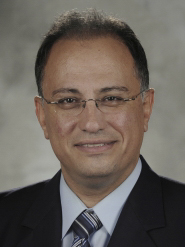
Manos M. Tentzeris (IEEE Fellow)
Ken Byers Professor, Georgia Tech, USA.
Title: “Zero-Power” RFID-enabled Wireless/B5G Ultrabroadband Modules for IoT, SmartAg, Industry 4.0 and Smart Cities Applications: from dream to reality with Additive Manufacturing
Time: 14:00-14:30, Wednesday, February 22, 2023
Abstract:
In this talk, inkjet-/3D-printed antennas, interconnects, “smart” encapsulation and packages, RF electronics, RFIDs microfluidics and sensors fabricated on glass, PET, paper and other flexible substrates are introduced as a system-level solution for ultra-low-cost mass produc- tion of Millimeter-Wave Modules for Communication, Energy Harvesting and Sensing applications. Prof. Tentzeris will touch up the state-
of-the-art area of fully-integrated printable broadband wireless modules covering characterization of 3D printed materials up to E-band, novel printable “ramp” interconnects and cavities for IC embedding as well as printable structures for self-monitoring and anti-counterfeiting packages. The presented approach could potentially set the foundation for the truly convergent wireless sensor ad-hoc networks of the future with enhanced cognitive intelligence and “rugged” packaging. Prof. Tentzeris will discuss issues concerning the power sources of “near-perpetual” RF modules, in- cluding flexible miniaturized batteries as well as power-scavenging approaches involving thermal, EM, vibration and solar energy forms.
The final step of the presentation will involve examples from shape-changing 4D-printed (origami) packages, reflectarrays and mmW wearable (e.g. biomonitoring) antennas and RF modules. Special attention will be paid on the integration of ultrabroadband (Gb/sec) inkjet-printed nanotechnology-based backscattering com- munication modules as well as miniaturized printable wireless (e.g.CNT) sensors for Internet of Things (IoT), 5G and smart agriculture/biomonitoring applications. It has to be noted that the talk will review and present challenges for inkjet-printed organic active and nonlinear devices as well as future directions in the area of environmen- tally-friendly (“green”) RF electronics and “smart-skin’ conformal sensors as well as massively scalable “tile-by-tile” RFID-enabled reconfigurable intelligent surfaces.
Biography:
Professor Tentzeris was born and grew up in Piraeus, Greece. He graduated from Ionidios Model School of Piraeus in 1987 and he received the Diploma degree in Electrical Engineering and Computer Science (Magna Cum Laude) from the National Technical University in Athens, Greece, in 1992 and the M.S. and Ph.D. degrees in Electrical Engineering and Computer Science from the University of Michigan, Ann Arbor in 1993 and 1998.
He is currently a Professor with the School of ECE, Georgia Tech and he has published more than 550 papers in refereed Journals and Conference Proceedings, 4 books and 23 book chapters, while he is in the process of writing 1 book. He has served as the Head of the Electromagnetics Technical Interest Group of the School of ECE, Georgia Tech. Also, he has served as the Georgia Electronic Design Center Associate Director for RFID/Sensors research from 2006-2010 and as the GT-Packaging Research Center (NSF-ERC) Associate Director for RF research and the leader of the RF/Wireless Packaging Alliance from 2003-2006. Also, Dr. Tentzeris is the Head of the A.T.H.E.N.A. Research Group (20 students and researchers) and has established academic programs in 3D Printed RF electronics and modules, flexible electronics, origami and morphing electromagnetics, Highly Integrated/Multilayer Packaging for RF and Wireless Applications using ceramic and organic flexible materials, paper-based RFID's and sensors, inkjet-printed electronics, nanostructures for RF, wireless sensors, power scavenging and wireless power transfer, Microwave MEM's, SOP-integrated (UWB, mutliband, conformal) antennas and Adaptive Numerical Electromagnetics (FDTD, MultiResolution Algorithms). He was the 1999 Technical Program Co-Chair of the 54th ARFTG Conference and he is currently a member of the technical program committees of IEEE-IMS, IEEE-AP and IEEE-ECTC Symposia. He was the TPC Chair for the IMS 2008 Conference and the Co-Chair of the ACES 2009 Symposium. He was the Chairman for the 2005 IEEE CEM-TD Workshop. He was the Chair of IEEE-CPMT TC16 (RF Subcommittee) and he was the Chair of IEEE MTT/AP Atlanta Sections for 2003. He is a Fellow of IEEE, a member of MTT-15 Committee, an Associate Member of European Microwave Association (EuMA), a Fellow of the Electromagnetics Academy, and a member of Commission D, URSI and of the the Technical Chamber of Greece. He is the Founder and Chair of the newly formed IEEE MTT-S TC-24 (RFID Technologies). He is one of the IEEE C-RFID DIstinguished Lecturers and he has served as one IEEE MTT-Distinguished Microwave Lecturers (DML) from 2010-2012.
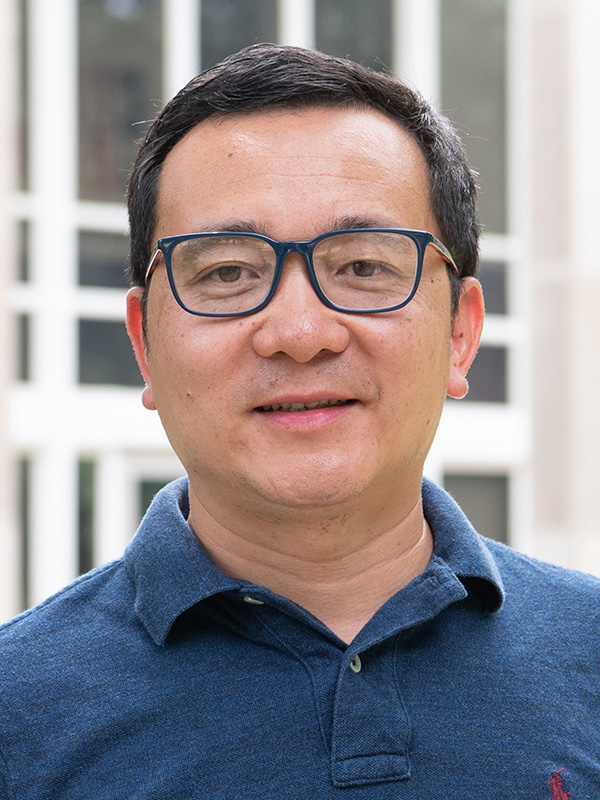
Shaoen Wu
Professor and Chair, Kennesaw State University, USA.
Title: Deep Learning based Radar Sensing: From Traditional to Lightweight
Time: 17:30-18:00, Tuesday, February 21, 2023
Abstract:
Wireless sensing based on radar has been widely used for human activity recognition (HAR) in recent decades and gained tremendous progress. In the last few years, deep learning has been employed to significantly improve the performance of radar wireless sensing-based HAR, with many customized models proposed and evaluated. This talk will cover deep learning models from traditional deep machine learning, which requires heavy computation, to very recent lightweight models, which dramatically reduce the computation load.
Biography: Dr. Shaoen Wu is the Department Chair of Information Technology at Kennesaw State University. He also serves as a Steering Committee Chair of IEEE MMTC. Dr. Wu worked as the State Farm Endowed Chair Professor in the School of Information Technology at Illinois State University, served on the Advisory Council of Scholarship for the Vice Provost for Research, the Dean's Faculty Advisory Board and the assistant department chair of computer science at Ball State University, also worked as an assistant professor in the School of Computing at the University of Southern Mississippi, a Staff Scientist at ADTRAN, and a Member of Technical Staff at Bell Labs, Lucent Technologies. He has been a General or TPC Chair for several international conferences, including the CSM of Globecom 2021.
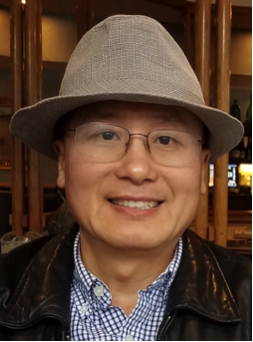
Jie Wang
Professor, University of Massachusetts, Lowell, USA.
Title: Generative Steganography via Live Commenting on Streaming Videos
Time: 17:00-17:30, Tuesday, February 21, 2023
Abstract:
I'll present a novel generative steganographic method using both texts and videos as carriers. Live commenting on videos played on video streaming websites is a popular feature, especially among younger viewers. We show that this feature, together with the underlying videos, can be exploited into a covert channel to conceal secrete information. In particular, given a secrete message, I'll demonstrate how to select an appropriate video and use a random reversible matrix to select appropriate video frames to embed and extract secret messages. We then use a neural model to generate appropriate comments to be posted on the selected video frames. The model consists of a residual network encoder to extract image features of the selected video frames and an LSTM decoder to generate comments that look normal to the general viewers. We train the model using a dataset we collected from popular video streaming websites, which consists of live comments posted on videos and the underlying videos. We show that, through experiments, the generated comments posted on selected video frames are imperceptible. Moreover, our method is able to conceal any message of a reasonable length by selecting an appropriate video without losing concealability.
Biography: Dr. Jie “Jed” Wang joined the Department of Computer Science at the University of Massachusetts Lowell in 2001 as Full Professor, and chaired the department for 9 years from 2007 to 2016. He has been Director for greater China Partnership of the US-based Consortium for Mathematics an Its Applications (COMAP) since 2011. He was Assistant Professor of Computer Science and then Associate Professor of Computer Science at the University of North Carolina prior to joining UMass. He received a PhD in Computer Science from Boston University in 1990, an MS in Computer Science and a BS in Computational Mathematics both from Sun Yat-sen University in, respectively, 1984 and 1982. He has 30 years of teaching and research experience and has worked as a network security consultant in a national bank. His research interests include data modeling and applications, text mining and learning, text automation systems, machine learning, algorithms and combinatorial optimizations, medical computation, network security, and computational complexity theory. He has published over 180 journal and conference papers, 12 books, and 4 edited books. His research has been funded by the National Science Foundation, IBM, Intel, and other companies. He is active in professional service, including chairing conference program committees and organizing workshops, serving as journal editors and the editor-in-chief of a book series on mathematical and interdisciplinary modeling. He has graduated 18 PhD students and is currently directing 5 PhD students.
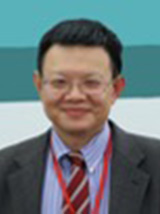
Li-Chun Wang (IEEE Fellow)
Professor and Dean, National Chiao Tung University, Taiwan
Title: 6G Wireless for Sustainable Development Goals
Time: 14:30-15:00, Wednesday, February 22, 2023
Abstract:
6G communication system and the United Nations Sustainable Development Goals (UN SDGs) all target 2030. Although the relationship between 6G and SDG is not currently well defined yet, both SDG and 6G cover a wide range of the same topics that can share the mutually reinforcing forces, such as energy saving and smart cities. In this talk, we introduce the vision of 6G and its relations to UN SDGs through a set of indicators. This measuring tool for data collection can help build a 6G ecosystem in line with the UN SDGs. We will show some 6G technologies, such as novel cellular architecture and radio resource management, that can be incorporated towards reaching the UN SDGs.
Biography:
Li-Chun Wang (M'96 -- SM'06 -- F'11) received Ph. D. degree from the Georgia Institute of Technology, Atlanta, in 1996. From 1996 to 2000, he was a Senior Technical Staff Member at AT&T Laboratories. Since August 2000, he has joined National Yang Ming Chiao Tung University (NYCU) in Taiwan. He is now the Chair Professor and serves the Dean of College of Electrical and Computer Engineering of NYCU.
Dr. Wang was elected to the IEEE Fellow in 2011 for his contributions to cellular architecture and radio resource management in wireless networks. He won two Distinguished Research Awards from National Science and Technology Council (2012, 2017), IEEE Communications Society Asia-Pacific Board Best Award (2015), Y. Z. Hsu Scientific Paper Award (2013), and IEEE Jack Neubauer Best Paper Award (1997). He was recognized as Top 2% Scientists Worldwide in a study from Stanford University.
His recent research interests are in the areas of cross-layer optimization for wireless systems, AI-enabled radio resource management for heterogeneous mobile networks, and big data analysis for industrial Internet of things. He holds 26 US patents, and has published over 300 journal and conference papers, and co-edited the book, “Key Technologies for 5G Wireless Systems,” (Cambridge University Press 2017).
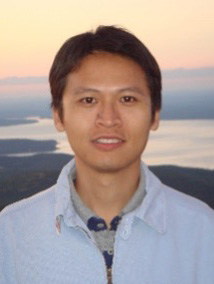
Zhi Wei
Professor, New Jersey Institute of Technology, NJ, USA.
Title: Deep autoencoders for analysis of single-cell RNA sequencing data
Time: 17:30-18:00, Monday, February 20, 2023
Abstract:
Clustering is a classical unsupervised learning approach. Clustering analysis has been conducted routinely in many fields, including single-cell RNA sequencing (scRNA-seq) studies mor recently. Numerous methods have been designed for clustering scRNA-seq data. However, most existing clustering methods for scRNA-seq have one or more of the following limitations: (1) ignore the characteristics of scRNA-seq data; (1) fail to exploit prior information for optimizing clustering performance; and (3) could not filter out irrelevant genes while conducting clustering. In this talk, I will introduce model-based deep autoencoders to address these issues. Extensive experiments on both simulated and real datasets demonstrate that the proposed methods can boost clustering performance significantly and result in biologically meaningful clusters.
Biography:
Dr. Wei is currently a professor of computer science and statistics (joint appointment) with the New Jersey Institute of Technology. He is also an adjunct professor at the University of Pennsylvania. His research interests include statistical modeling, machine learning, and advanced data analytics, with application to various data enriched fields, especially genomics. His work has been supported by NIH, NSF, DoD, non-profit foundations, and industry. His methodology works have been published in prestigious statistics journals including JASA, Biometrika and AOAS, and top machine learning and AI journals and conferences including Nature Machine Intelligence, IEEE TNNLS, NIPS, KDD, AAAI, IJCAI and ICDM. He has authored or coauthored more than 150 journal publications with 15000 citations and an H-index of 53. He is an editorial board member of IEEE Internet of Things Journal, IEEE Transactions on Systems, Man and Cybernetics: Systems, BMC Bioinformatics, BMC Genomics, and Cells.
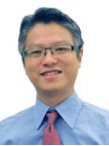
Yonggang Wen (IEEE Fellow)
Professor, Nanyang Technological University (NTU), Singapore
Title: DCWiz: Transforming Data Center Operations and Management with AI
Time: 10:00-10:30, Wednesday, February 22, 2023
Abstract:
Data center, dedicated space to house computer systems and associated components, plays an important role in propelling digital transformation globally, especially in the presence of a global pandemic (e.g., COVID-19). The resulted extensive use of services such as cloud, big data, IoT and artificial intelligence is prompting DC operators to consolidate high-performance mission critical IT infrastructure in hyper-scale data centers. In practice, data centers are managed and optimized towards two operational objectives: 1) business resilience, serving to evaluate the commercial impact of service disruption, and 2) operations sustainability, serving to evaluate the cost of providing services. AI solutions, made popular by Google DeepMind, have been touted with great potential to optimize the aforementioned operational metrics. However, adopting AI techniques for data center operations and management (O&M) faces substantial challenges due to data scarcity and risk-averse mindset. In this talk, we present DCWiz, a transformative industrial AI solution that integrates an industry-grade digital twin with emerging AI techniques to digitalize, optimize and automate data center O&M for operational excellence. Specifically, DCWiz leverages advanced AI techniques (e.g., deep reinforcement learning and generative adversarial network) to train an industry-grade digital twin for any physical data center, in terms of data accuracy, and deploy the digital twin as a pivotal module to provide descriptive, predictive and prescriptive AI for DC O&M. We delve into two use cases, namely hot-spot management and PUE optimization, to show that DCWiz would potentially lead to 30% of cooling cost saving in tropical environments. We further share several commercial trials with Alibaba, Singapore National Supercomputing Center (NSCC), Singapore, each of which represents different applications of the DCWiz solution. The trial results demonstrate the effectiveness of our DCWiz solution in improving manageability, reducing cost and mitigating operational risks for mission-critical data centers.
Biography:
Dr. Yonggang Wen is a Professor and President’s Chair in Computer Science and Engineering at Nanyang Technological University (NTU), Singapore. He also serves as the Associate Dean (Research) at College of Engineering, NTU Singapore. Previously he served as the acting Director for Nanyang Technopreneurship Center (NTC) (2017-2019) and the Assistant Chair (Innovation) at the School of Computer Science and Engineering (2016-2018). He received his PhD degree in Electrical Engineering and Computer Science (minor in Western Literature) from Massachusetts Institute of Technology (MIT), Cambridge, USA, in 2008. Dr. Wen has published over 300 papers in top journals and prestigious conferences. His systems research has gained global recognitions. His work in Multi-Screen Cloud Social TV has been featured by global media (more than 1600 news articles from over 29 countries) and received ASEAN ICT Award 2013 (Gold Medal). His work on Cognitive Digital Twin for Data Centre, has won the 2015 Data Centre Dynamics Awards – APAC (the ‘Oscar’ award of data centre industry), 2016 ASEAN ICT Awards (Gold Medal), 2020 IEEE TCCPS Industrial Technical Excellence Award, 2021 W.Media APAC Cloud and Datacenter Technology Leader Award, and 2022 Singapore Computer Society Digital Achiever Tech Leader Award. He was the winner of 2019 Nanyang Research Award and the sole winner of 2016 Nanyang Awards for Innovation and Entrepreneurship, both of which are the highest recognition at NTU. He is a co-recipient of multiple Best Paper Awards from top journals, including 2019 IEEE TCSVT and 2015 IEEE Multimedia, and at international conferences, including 2016 IEEE Globecom, 2016 IEEE Infocom MuSIC Workshop, 2015 EAI Chinacom, 2014 IEEE WCSP, 2013 IEEE Globecom and 2012 IEEE EUC. He is the incoming Editor in Chief of IEEE Transactions on Multimedia (TMM), serves or has served on editorial boards for multiple IEEE and ACM transactions, and was elected as the Chair for IEEE ComSoc Multimedia Communication Technical Committee (2014-2016). His research interests include cloud computing, green data center, big data analytics, multimedia network and mobile computing. He is a Fellow of IEEE and Singapore Academy of Engineering, and an ACM Distinguished Member.
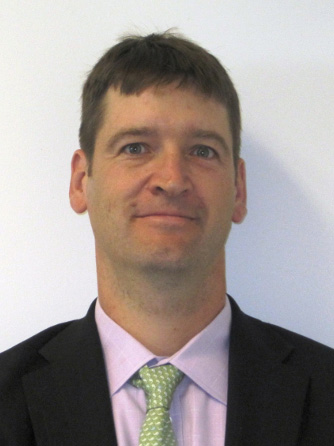
Cedric Westphal
Principal Research Architect, Huawei, USA
Title: What Color is Your Internet? And Can We Make it Green?
Time: 15:00-15:30, Wednesday, February 22, 2023
Abstract:
Reducing energy consumption - and especially carbon emissions - is one of the most important challenges facing humankind. ICT are a powerful tool to reduce emissions, as they offer alternatives to activities that are costly in energy: video streaming saves energy vs driving to a movie theater, for instance.
Still, the carbon footprint of networking has been growing, despite better energy efficiency per transmitted bit, due to the sheer growth in Internet usage and traffic. The information and communication technology (ICT) sector is estimated to currently create 2.7% of all global CO2 emissions and is expected to significantly increase its power consumption by 2030.
As such, it is important to offer new mechanisms to reduce the energy footprint of networks. In this talk, we present some of the challenges for green networking, with a discussion of different levels in the network where to apply energy considerations. We discuss the potential for standardization within IETF. We also present a framework to include energy consideration into the management plane of a network; we apply this framework to optimize the network topology so as to minimize the energy spending while at the same time providing a satisfactory Quality of Experience (QoE) to the end users.
Biography:
Cedric Westphal is a Principal Research Architect with Huawei Innovations working on future network architectures, both for wired and wireless networks. His current focus is on Information Centric Networks. He also has been an adjunct assistant professor with the University of California, Santa Cruz since 2009. Prior to Huawei, he was with DOCOMO Innovations from 20072011 in the Networking Architecture Group. His work at DOCOMO has covered several topics, all related to next generation network architectures: scalable routing, network virtualization and reliability, using social networks for traffic offloading, etc. Prior to that, he was at Nokia Research Center (now Nokia Bell Labs) from 2000 to 2006. He received a MSEE in 1995 from Ecole Centrale Paris, and a MS (1995) and Ph.D. (2000) in EE from the University of California, Los Angeles. Cedric Westphal has coauthored over eighty journal and conference papers, including several best paper awards; and been awarded over thirty patents. He was an area editor for the ACM/IEEE Transactions on Networking, an assistant editor for (Elsevier) Computer Networks journal, and a guest editor for Ad Hoc Networks journal and ACM/IEEE JSAC. He has served as a reviewer for the NSF, GENI, the EU FP7, and other funding agencies; he has co-chaired the technical program committee of several conferences, including IEEE ICC (NGN symposium), IEEE NFV-SDN or IEEE IPCCC, and he was the general chair for IEEE INFOCOM 2016. He is a senior member of the IEEE.
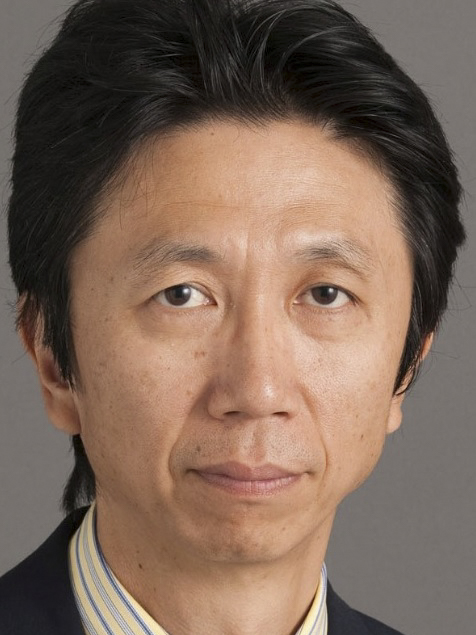
Naoaki Yamanaka (IEEE/IEICE Fellow)
Professor, Keio University, Japan
Title: Time-space synchronized digital twin for B5G managed network
Time: 10:00-10:30, Monday, February 20, 2023
Abstract:
Beyond 5G, ultra-reliable and low latency communication (URLLC) is a key technology. This paper describes ultra-multi-wavelength parallel optical paths and hollow-core fiber to realize the ultimate low latency path. Once ultra-low latency is realized, cyber-physical systems will not only have low latency in the access system, but also become sophisticated, realizing a spatially-synchronized cyberspace that is synchronized in the area, i.e., spatially synchronized in time and space. In other words, events occurring in the spatially spread physical space can be monitored and controlled centrally like a diorama. This is called a time-space synchronized digital twin. This paper describes two applications, including experiments: the first is a predictive digital twin, in which technology to predict and control the near future is applied to self-driving cars; the second is a security network in which sensors distributed in a region can be centrally managed using URLLC paths.
These technologies will be key to a reliable and smart Beyond 5G society.
Biography:
Dr. Yamanaka graduated from Keio University, Japan where he received B.E., M.E., and Ph. D. degrees in engineering in 1981, 1983 and 1991, respectively. In 1983 he joined Nippon Telegraph and Telephone Corporation's (NTT's) Communication Switching Laboratories, Tokyo, Japan. His research areas are Network Architecture in Optical Network, Cloud Computing, Smart Network, Communication Protocol, and Optical Switching System including Optical Devices. He was a director of Asia Pacific Board at IEEE Communications Society, and was an vice-president of IEICE. He is an IEEE Fellow and an IEICE Fellow.
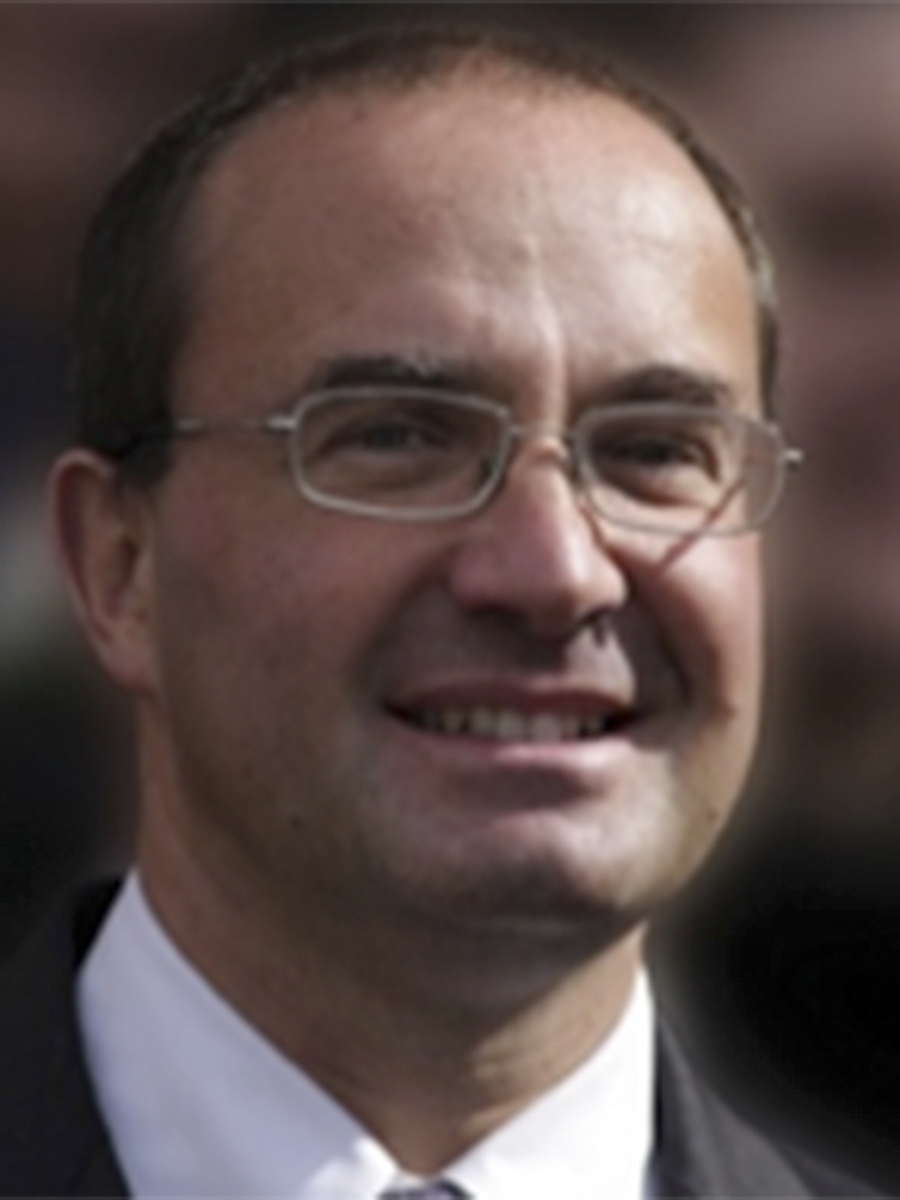
Michele Zorzi (IEEE Fellow)
Professor, University of Padova, Italy
Title: 5G NR-Light at Millimeter Waves: Design Guidelines for Mid-Market IoT Use Cases
Time: 13:30-14:00, Wednesday, February 22, 2023
Abstract:
5th generation (5G) systems have been designed with three main objectives in mind: increasing throughput, reducing latency, and enabling reliable communications. To meet these (often conflicting) constraints, the 3GPP released a set of specifications for 5G NR, one of the main innovations being the support for communications in the millimeter wave (mmWave) bands. However, how to implement lower complexity, energy efficient, mid-market Internet of Things (IoT) applications is still an on-going investigation, currently led by the 3GPP which is extending the NR standard with NR-Light specifications to support devices with reduced capabilities (REDCAP). While REDCAP devices may also operate at mmWaves to improve the network performance, hardware/software simplifications are needed to support balanced and mixed requirements compared to 5G NR systems. In this context, contributions of this paper are threefold. First, we present some NR-Light use cases for which the support of the mmWave bands is desirable. Second, we describe how 5G NR can be simplified to achieve NR-Light requirements and expectations. Finally, we evaluate via simulation the performance of REDCAP devices operating at mmWaves in an industrial IoT setup, in terms of cost and complexity, throughput, and latency.
Biography:
Michele Zorzi received his Laurea and Ph.D. degrees in electrical engineering from the University of Padova in 1990 and 1994, respectively. During academic year 1992/1993 he was on leave at the University of California San Diego (UCSD). After being affiliated with the Dipartimento di Elettronica e Informazione, Politecnico di Milano, Italy, the Center for Wireless Communications at UCSD, and the University of Ferrara, in November 2003 he joined the faculty of the Information Engineering Department of the University of Padova, where he is currently a professor. His present research interests include performance evaluation in mobile communications systems, random access in mobile radio networks, ad hoc and sensor networks and IoT, energy constrained communications protocols, 5G millimeter-wave cellular systems, and underwater communications and networking. He was Editor-in-Chief of IEEE Wireless Communications from 2003 to 2005, Editor-in-Chief of IEEE Transactions on Communications from 2008 to 2011, and is currently the founding Editor-in-Chief of IEEE Transactions on Cognitive Communications and Networking. He was Guest Editor for several Special Issues in IEEE Personal Communications, IEEE Wireless Communications, IEEE Network, and IEEE JSAC. He served as a Member-at-Large in the Board of Governors of the IEEE Communications Society from 2009 to 2011, and as its Director of Education from 2014 to 2015. He is a Fellow of the IEEE.